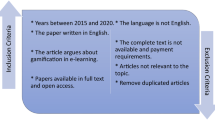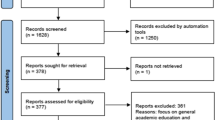Abstract
The study investigates the impact of Massively Multiplayer Online Role-Playing Game (MMORPG) on players’ application of vocabulary learning strategies. The participants are experienced online gamers aged between 24 and 25 years old. Apart from identifying the vocabulary learning strategies used by the ESL players during online gaming, in order to find out how aspects related to MMORPG influence the use of strategies, data were also obtained from online semi-structured interviews with these (ESL) players who are involved in Guild Wars 2, a popular MMORPG computer game. Using Gu and Johnson’s (1996) categorisation of vocabulary learning strategies (VLS), it was found that these ESL players utilise metacognitive, cognitive, memory and activation strategies in order to learn game-related vocabulary during the MMORPG game-play sessions. Additionally, there are four factors that affect the vocabulary language learning experience of the players, and they consist of; (a) the role of game storylines in enhancing MMORPG gaming immersion, (b) freedom to learn while being away from classroom-related rules, (c) social interaction that enriches players’ learning experience, and (d) the role of collaboration among the MMORPG community in enriching learning experience.


Similar content being viewed by others
Data Availability
The datasets generated during and analysed during the current study are not publicly available due to them containing information that could compromise research participant privacy/consent, but are available from the corresponding author on reasonable request.
References
Aghlara, L., & Tamjid, N. H. (2011). The effect of digital games on Iranian children’s vocabulary retention in foreign language acquisition. Procedia - Social and Behavioral Sciences, 29, 552–560. https://doi.org/10.1016/j.sbspro.2011.11.275
Braun, V., & Clarke, V. (2006). Using thematic analysis in psychology. Qualitative Research in Psychology, 3(2), 77–101
Briewin, M., Naidu, B., & Embi, M. A. (2013). Learners of English as foreign language preference for grammar strategies in learning grammar. International Journal of English and Literature, 4(5), 249–253
Brockmyer, J. H., Fox, C. M., Curtiss, K. A., Mcbroom, E., Burkhart, K. M., & Pidruzny, J. N. (2009). The development of the game engagement questionnaire: a measure of engagement in video game-playing. Journal of Experimental Social Psychology, 45(4), 624–634
Burguillo, J. C. (2010). Using game theory and competition-based learning to stimulate student motivation and performance. Computers & Education, 55(2), 566–575. https://doi.org/10.1016/j.compedu.2010.02.018
Bytheway, J. (2015). A taxonomy of vocabulary learning strategies used in massively multiplayer online role-playing games. CALICO Journal, 32(3), 508–527
Denzin, N. K., & Lincoln, Y. S. (2011). The Sage handbook of qualitative research. Sage Publications.
Derakhshan, A., & Khatir, E. D. (2015). The effects of using games on English vocabulary learning. Journal of Applied Linguistics and Language Research, 2(3), 39–47. http://www.jallr.com/index.php/JALLR/article/view/40.69.
Garzotto, F. (2007) Investigating the educational effectiveness of multiplayer online games for children. Proceedings of the 6th International Conference on Interaction Design and Children - IDC ’ doi: https://doi.org/10.1145/1297277.1297284.
Golonka, E. M., Bowles, A. R., Frank, V. M., Richardson, D. L., & Freynik, S. (2014). Technologies for foreign language learning: a review of technology types and their effectiveness. Computer Assisted Language Learning, 27(1), 70–105
Griffiths, M., Hussain, Z., Grüsser, S. M., Thalemann, R., Cole, H., Davies, M. N., & Chappell, D. (2013). Social interactions in online gaming. Developments in Current Game-Based Learning Design and Deployment. https://doi.org/10.4018/978-1-4666-1864-0.ch006
Gu, P. Y., & Johnson, R. K. (1996). Vocabulary learning strategies and language learning outcomes. Language learning, 46(4), 643–679. https://doi.org/10.1111/j.1467-1770.1996.tb01355.x
Hsien-Sheng, H., Chen-Sian, C., Chien-Yu, L., Chih-Chun, C., & Jyun-Chen, C. (2014). The influence of collaborative learning games within different devices on student’s learning performance and behaviours. Australian Journal of Educational Technology. https://doi.org/10.14742/ajet.347
Hapsari, A., Sari, P. I. P., & Rais, B. (2018). Gamers’ experience in using Defense of the Ancient 2 to learn language. Indonesian Journal of Informatics Education. https://doi.org/10.20961/ijie.v2i2.24156
Merriam-Webster. (n.d.) Collaboration. Retrieved on 2019, from https://www.merriam-webster.com/thesaurus/collaboration.
Merriam-Webster. (n.d.) Immersion. Retrieved on 2019, from https://www.merriam-webster.com/dictionary/immersion.
Katemba, C. (2019). Students’ vocabulary enhancement at grade 10: a comparative study using CALL & MALL in Indonesia. CALL-EJ, 20(1), 87–114
Miftachudin, M. (2012). The role of computer assisted language earning (CALL) for english language learning of elementary and high schools in Indonesia. Register Journal, 5(2), 259–274
Min, L. W., Richards, K., & Guan, K. S. (2014). Examining a massive multiplayer online role-playing game as a digital game based learning platform.Computer in the Schools. Interdisciplinary Journal of Practice, Theory, and Applied Research, 31(1–2), 65–83. https://doi.org/10.1080/07380569.2013.878975.
Mofareh, A. A. (2019). The use of technology in English language teaching. Frontiers in Education Technology, 2(3), 168–180
Mutlu, A., & Eröz-Tuğa, B. (2013). The role of computer-assisted language learning (CALL) in promoting learner autonomy. Egitim Arastirmalari-Eurasian Journal or Educational Research, 51, 107–122
Nation, I. S. P. (2001). Learning vocabulary in another language. Cambridge University Press.
Nosidlak, K. M. (2013). Vocabulary learning strategies of the advanced students. Journal of Language Teaching and Research, 4(4), 655–661
Nur Syafiqah Yaccob & Melor Md Yunus. (2019). Language games in teaching and learning English grammar: a literature review. Arab World English Journal, 10(1), 209–217
Peterson, M. (2010). Computerized games and simulations in computer-assisted language learning: a meta-analysis of research. Simulation & Gaming, 41(1), 72–93
Procci, K., & Bowers, C. (2011). An examination of flow and immersion in games. Proceedings of the Human Factors and Ergonomics Society Annual Meeting, 55(1), 2183–2187
Rahimi, M., & Hosseini, S. F. K. (2011). The impact of computer-based activities on Iranian high-school students’ attitudes towards computer-assisted language learning. Elsevier, Procedia Computer Science, 3, 183–190
Riahipour, P., & Saba, Z. (2012). ESP vocabulary instruction: investigating the effect of using a game oriented teaching method for learners of English for nursing. Journal of Language Teaching and Research, 3(6), 1258–1266
Sedaghatkar, M. (2017). The effect of Computer-assisted Language Learning (CALL) on immediate and delayed retention of vocabularies in general English course. International Journal of Applied Linguistics and English Literature, 7(1), 231–238
Shih, R. C., Papa, C., Hsin T. H., & Lou, S. J. (2011) The attributes and importance of online game with language learning for college English-majored students. In Chang M., Hwang W.Y., Chen M.P., Müller W. (Eds.), Edutainment Technologies. Educational Games and Virtual Reality/Augmented Reality Applications (pp. 420–424). Springer, Berlin, Heidelberg. https://doi.org/https://doi.org/10.1007/978-3-642-23456-9_75.
Sung, H., & Hwang, G. (2013). A collaborative game-based learning approach to improving students’ learning performance in science courses. Computers & Education, 63, 43–51
Thang, S. M., Sim, L. Y., Mahmud, N., Lin, L. K., Zabidi, N. A., & Ismail, K. (2014). Enhancing 21st century learning skills via digital storytelling: voices of Malaysian teachers and undergraduates. Procedia - Social and Behavioral Sciences, 118, 489–494
Yunhao, Z. (2011). The use of vocabulary learning strategies by good and poor language learners (Unpublished master’s dissertation). Kristianstad University Sweden, Sweden. Retrieved from http://www.diva-portal.org/smash/get/diva2:429132/FULLTEXT01.pdf.
Acknowledgements
We hereby submit the manuscript entitled ESL Players’ Use of Vocabulary Learning Strategies in Massively Multiplayer Online Role-Playing Games (MMORPG) to be considered for publication in The Asia Pacific Educational Researcher. We confirm that we have removed any identifying content that could compromise a blind review. This is an original submission that has not been published before and that is not currently under review at any other publication outlet.
Funding
This work was partially supported by the University Malaya Research Grants [UMRG: RP051C-17HTM].
Author information
Authors and Affiliations
Contributions
LLN, RSASG and CSY contributed to the conception and design of the study, interpretation of data, and drafting of the manuscript. RSASG performed the data collection. LLN and CSY was involved in critical revision of the article. All authors read and approved the final manuscript.
Corresponding author
Ethics declarations
Conflict of interest
The authors declare that they have no competing interests.
Additional information
Publisher's Note
Springer Nature remains neutral with regard to jurisdictional claims in published maps and institutional affiliations.
Rights and permissions
About this article
Cite this article
Ng, L.L., Rino Sharieful Azizie & Chew, S.Y. Factors Influencing ESL Players’ Use of Vocabulary Learning Strategies in Massively Multiplayer Online Role-Playing Games (MMORPG). Asia-Pacific Edu Res 31, 369–381 (2022). https://doi.org/10.1007/s40299-021-00578-6
Accepted:
Published:
Issue Date:
DOI: https://doi.org/10.1007/s40299-021-00578-6




